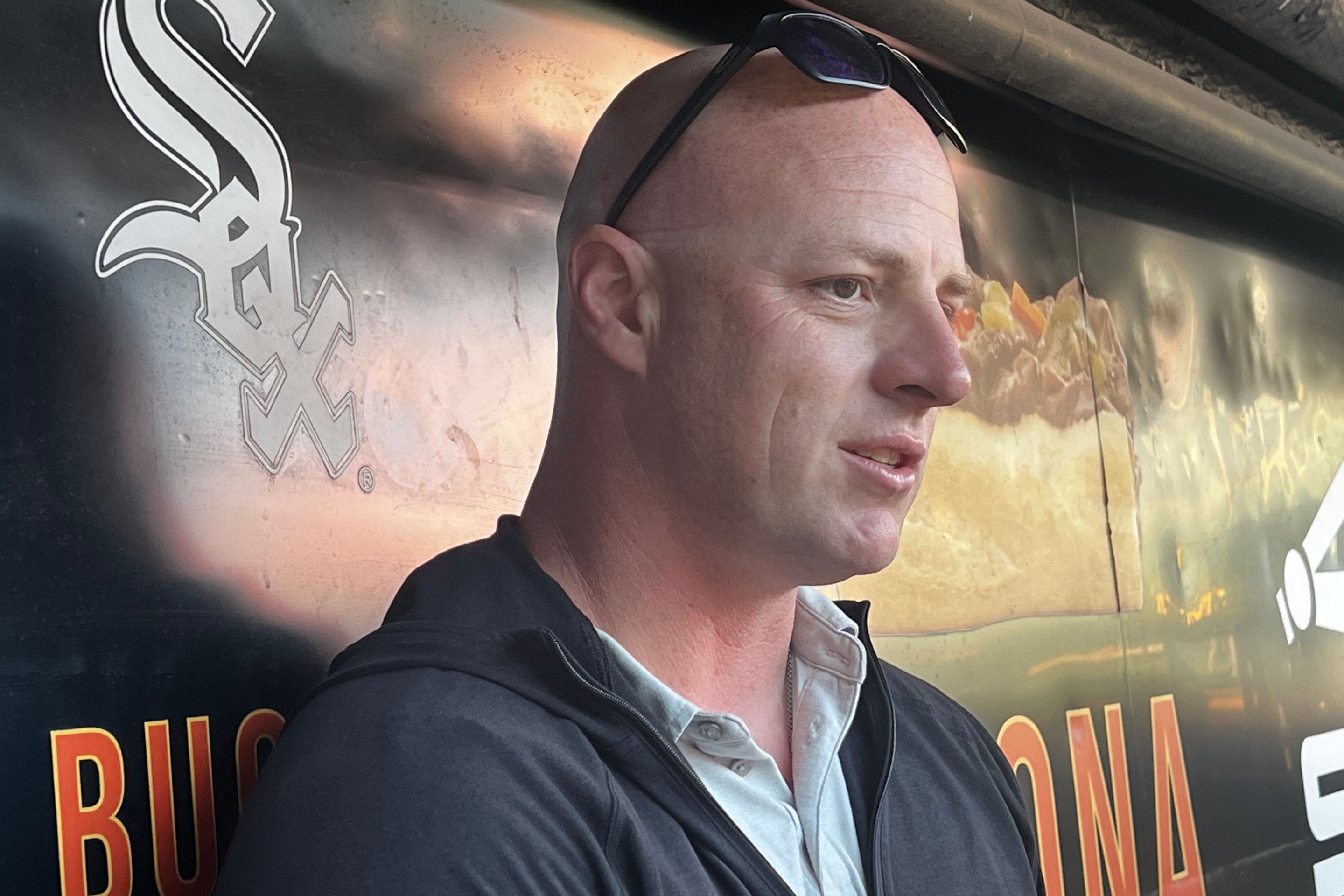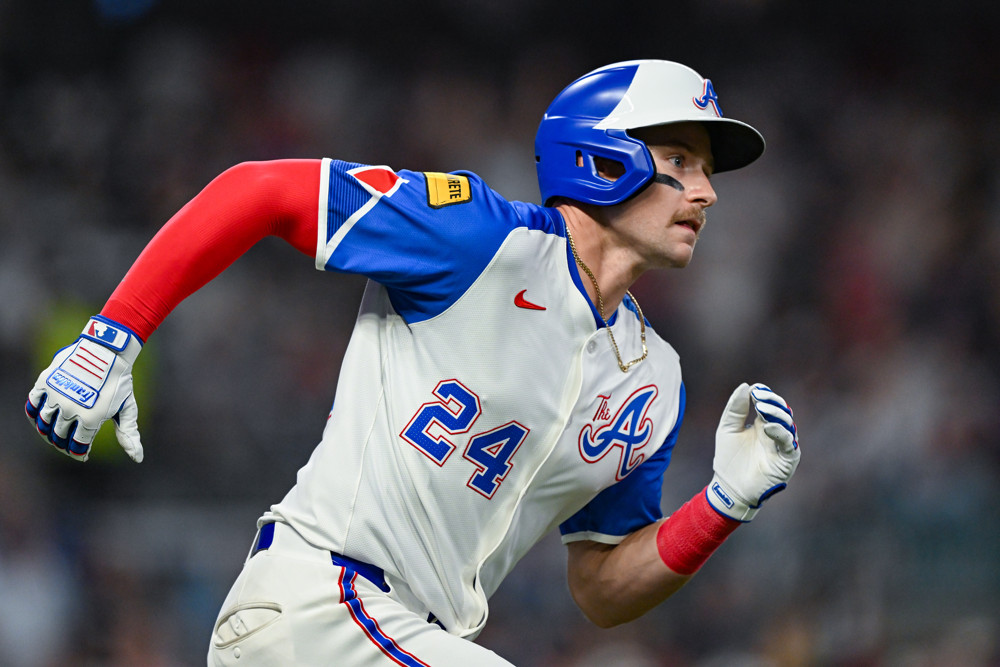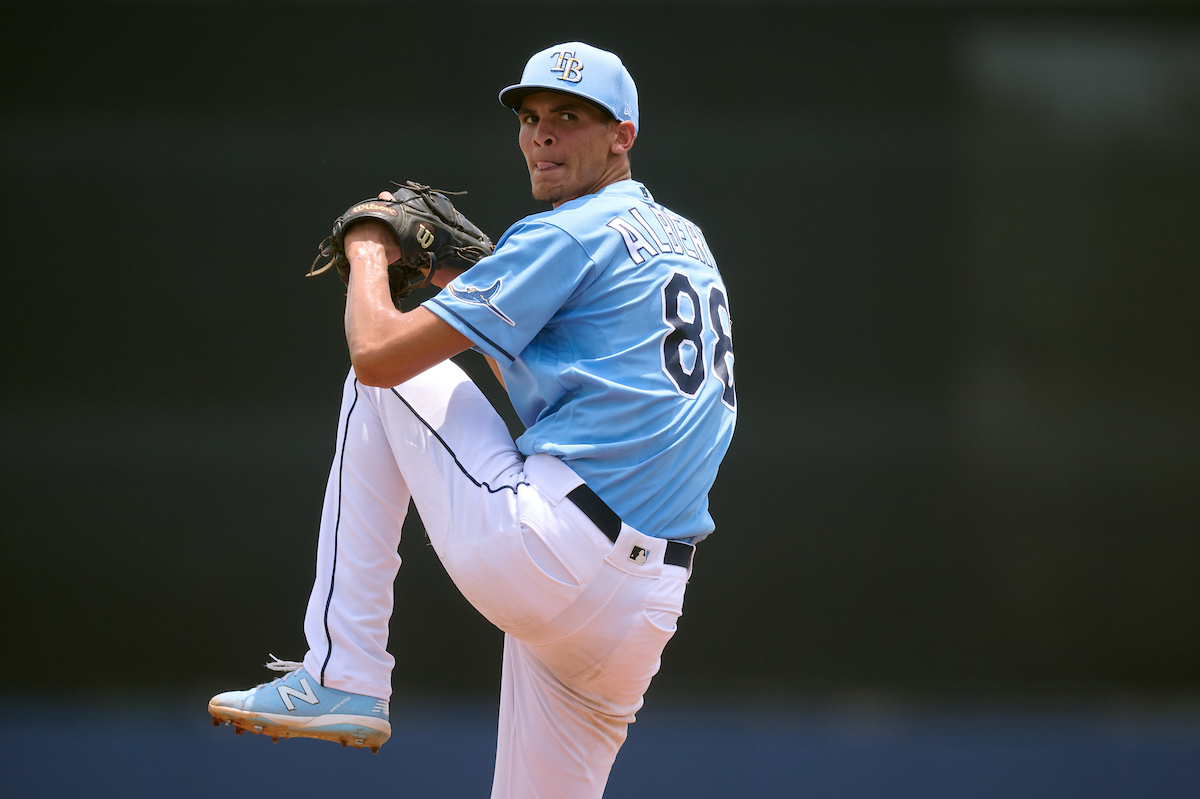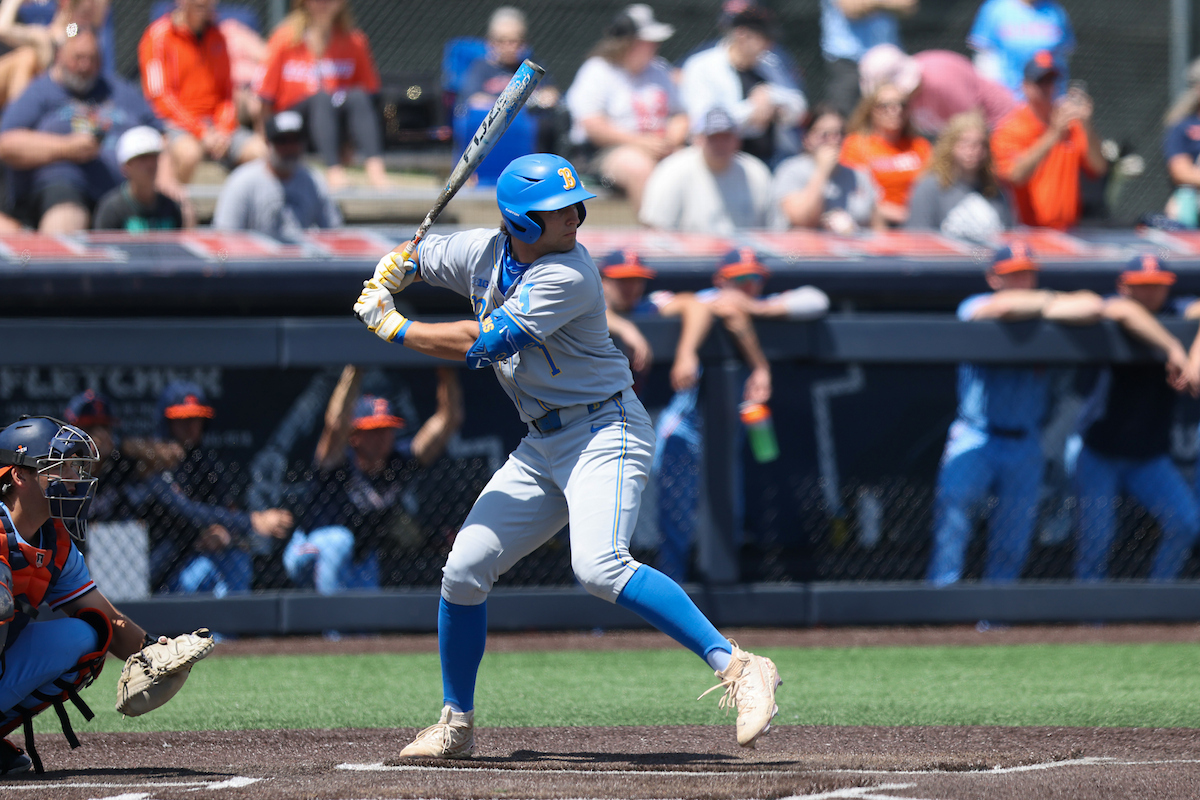We are overdue for a P.O. Sox mailbag. As always, thanks for your White Sox questions and your support.
Is this not the worst case scenario playing out? The team is beyond awful, but the division is so terrible it convinced them to stay the course. Nothing changes, nothing is accomplished, and it’s another lost year on Hahn’s ledger with no repercussions. When is enough enough?
-- Trooper Galactus
To quote Buddy Bell, "I never say it can't get worse." That's when he was manager of the Royals, and not director of the White Sox farm system, for the record.
It is close, but I think the worst-case scenario features nothing from Dylan Cease and Luis Robert Jr., and they're faring OK-to-well. They're also still within feasible distance of first place in the AL Central, though not because of anything they did, and I think it's ultimately better to be in it than out of it, no matter how pungent "it" may be.
But acknowledging your broader point, yes, there's little present optimism, and absolutely no reason to think Rick Hahn and Kenny Williams can solve it.
What's frustrating is that this is the kind of roster that I would love to see a new baseball operations team take over. Besides the obvious benefits, it would be fun to see what a more transactional group of executives with no attachment to individuals on the roster might do to back out of this dead end, even if you wouldn't expect a real influx of talent in return. Alas.
Will another 'white flag' trade where the Sox are 3 or 4 games out of first but still under .500 result in the same negativity, both locally and nationally, that the first white flag trade created?
-- Mark S.
It seems like Rick Hahn laid some track for such a decision in his media session before Monday's game.
“The goals have always been higher than just making the playoffs,” Hahn said, a regularly used refrain during the team’s rebuilding days, when Hahn was focused on constructing an annual winner as opposed to a team that could have one good season before falling back into — dare I use that word? — mediocrity. “If we’re able to turn this around and get ourselves in a position to win this division, given that we are currently 11 under, we are obviously going to be playing pretty damn good baseball for the final two, three months of the season, which would give us reason to believe that the postseason performance could be better.
“Making the playoffs is important. But the goals are loftier than that. And when we judge ultimately what happens as we get much closer to Aug. 1 than we are now, how we project our ability to not only win the division but to make an impact in October is going to factor in.”
And I don't think there'd be the same sense of betrayal that crushed fans back in 1997. I think it'd be met with equal parts disgust and indifference, or disgust that leads to indifference in short order.
One distinction is that I don't sense a real fan favorite on the entire roster. That was also kind of the case back when the Sox tore it down the last time -- Chris Sale's petulance wore on people, Adam Eaton wasn't a prototypical right fielder (and eventually proved why some people sensed a phony), and José Quintana's proclivity for no-decisions made his starts less of an event than they should've been. José Abreu was the rock, though, and they kept him around.
Tim Anderson used to be that guy, but he's been through a lot, and he's put fans through a lot. Dylan Cease is reliable, but he's not quite a horse. Is there anybody else, especially since Lucas Giolito's departure is likely a foregone conclusion? Not really. The disgust would stem mainly from Hahn and Kenny Williams being allowed to tear it down for a third time despite the record showing they have no ability to build something better.
But hey, that at least allows me to embed my favorite Comedy Bang Bang sketch.
What is the key mistake that this organization made that has led to their window being shut incredibly fast?
-- Michael
Not ponying up for Bryce Harper trumps hiring Tony La Russa, I think. Tony La Russa's strange presence hampered the front office's ability to separate roster problems from management problems, but they'd still have the same issues with talent and a roster that doesn't fit, and I don't trust Williams and Hahn to solve problems even with an extra year.
With Harper, not only does he do everything the White Sox needed and still need -- an MVP-caliber bat in right field -- but perhaps his heavy presence on the payroll would've forced the White Sox to really scrutinize their own talent, knowing that they might have to be a little nimbler with containing costs in other areas of the roster.
Free agent contracts always come with inefficiency. You pay Harper for 13 years, you hope he's good through eight. That sounds like a problematic ROI, but that's still long enough to provide a transition to a different roster. The Sox instead chose to pay Yasmani Grandal for four years (you hope he's good for three), and Dallas Keuchel for three (and you hope he's good for two). They declined a little sharper than everybody expected, which reduced the already small window to provide reinforcements. Nobody new has ascended, which is how you end up with a roster where Luis Robert Jr. looks like the only anchor tenant.
Does Yasmani Grandal play in the majors next year? And if so, which team?
-- Sox Odyssey2031
If he wants to. There are a lot of bad catching situations, and he can at least be a part-time solution. Let's predict a reunion with the Reds or Padres.
Am I a bad fan for thinking this team making the playoffs does nothing? I want to see the Sox make the playoffs, but I also want them to be competitive in the playoffs and not luck into winning 1 game in the first series before being sent packing
-- Alec S.
Building off of Alec’s lead, Am I a bad fan for thinking that I’d like to see this team lose 60of it’s last 90 games to shame the Chairman et al for the way they’ve run the team for 40years? ( Of course I don’t expect even that would cause him to sell or even shake up the front office.) Let’s admit it, 2005 was the flukiest championship ever. I am glad we did it but even 2005 did not demonstrate an organization operating at the top level of its industry. Seby Zavala looks like Johnny Bench compared to Chris Widger.
-- Mark
This discussion is a culturally relativistic one, in the sense that it's a matter of what your faith and value system dictates. We're basically discussing whether euthanizing a team is humane or against God's will, and I can't fault anybody who is really sensitive to quality of life.
As the Sox founder, do you think Jerry ponders what it might be like to hire management from outside his circle? Until the Karnišovas hire, that hadn't happened since Larry Himes in 1986.
-- Asinwreck
Not really. I don't think he thinks much about it at all.
I don't say that as a judgment of his cognitive abilities. He just purchased a controlling interest in Stadium as teams like the Utah Jazz are transitioning from their traditional RSN models, and that could end up giving them a head start and/or leverage in their next distribution deal. I just think he likes being the chairman of a Major League Baseball team with his friends, and results are a distant second, and that's first place in his book.
Do you think a major league team can learn discipline and pitch recognition or is it too late once they are this far along? It seems Grifol and co. are saying the right things but almost 3 months in they are no better than La Russa era in terms of their awful approach at the plate.
-- Adam H.
It looks like discipline improvements can happen at the individual level, but they remain random. I remember during the pandemic when everybody was trying to figure out whether alternate training sites could create any unusual success stories, and the Kansas City Royals seemed to have a whole bunch of leaps in their plate discipline. Two years later, they're 28th in the league in walks, just ahead of the White Sox.
It seems like the way to add plate discipline without paying top dollar (or having top draft/signing capital) is to pick guys with an idea of the strike zone and bad swings, but the White Sox haven't had a whole lot of luck in fixing those, either.
If it weren't for Oakland, the AL Central would have the 4 worst teams in the American league... has a division ever been this bad before?
-- Rob L.
The strike robbed us of a lot as White Sox fans, but it also robbed baseball fans of a chance to see how bad a division could be. The Texas Rangers were in first place in the AL West at the time of the stoppage with a record of 52-62, hamstrung by the league's second-worst pitching staff. The last-place team in both the AL East and AL Central had a better record by a half-game. They didn't have a bottom-feeder who generated the same feeling of despair as the Royals, but they didn't really need one.
I’m watching Texas vs LAA. Dunning and Simien working out very well post Sox. Do the Sox have a reputation in MLB for not developing players? I am trying to think of a trade where they ended up winning the trade, without any debate.
-- Dan F.
I think Dane Dunning was a fair deal for Lance Lynn, especially since he's getting by with some peripherals that nobody would bank on. Marcus Semien was underappreciated by the White Sox, even if he required a ton of time and sweat equity that the Oakland A's could afford to undertake.
What stands out to me when thinking about this question is that the White Sox really haven't made many trades, period. Just about every deal they've made has been forced by roster situations -- expiring contracts, lack of options, etc. Two examples involved one player: Reese McGuire for Zack Collins was an easy win, but it was negated by Reese McGuire for Jake Diekman. If they have a reputation for not developing players, I think it shows up in this lack of teams not being especially moved by what the White Sox have to offer.
Why aren’t the White Sox able to hit the baseball in the air more consistently? They have been bottom 10 in ground ball rate for the last couple of years. Is it specifically the individual approach of all their hitters being the same or is it an organizational deficiency in player development?
-- Sean T.
The White Sox spent a lot of years emphasizing all-fields power, which makes some sense given where they play. Put a strong right-handed hitter in Guaranteed Rate Field, and he can score a number of cheap homers by taking advantage of the jet stream going out to right field.
But a lot of strong hitters might have standout opposite-field power because they don't have the swing or the bat speed to lift the ball to the pull field, and while it's great they can poke the ball out the other way, few ballparks are so accommodating. In situations where pulling the ball produces the more reliable results, they don't have the skills to pay those bills.
Jake Burger is one example of somebody who was able to steer his way out of that trap. The first of his battles was figuring out how to stop hitting the ball on the ground to the left side, and eventually that was overshadowed by the devastating injuries that nearly derailed everything. Smash-cut to 2023, and he has the team's third-lowest ground-ball rate. But he's been an exception.
This theory doesn't explain everybody, mind you. Guys like Yoán Moncada and Tim Anderson don't seem to have the bat speed to get lift due to their physical issues, and their ground-ball rates have spiked as a result. But that only highlights the fact that the Sox have to carefully construct a plan to avoid dying by the ground ball, and all it takes are one or two targeted setbacks to send the whole plan crashing down.





